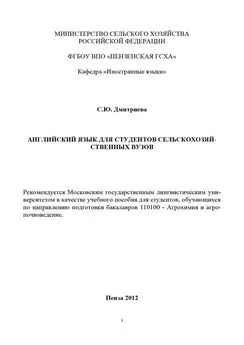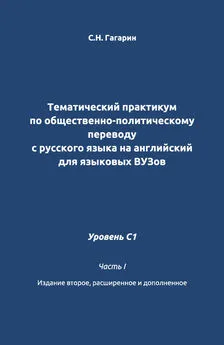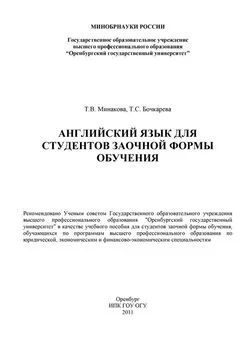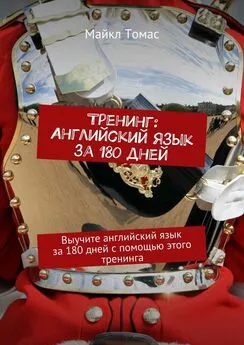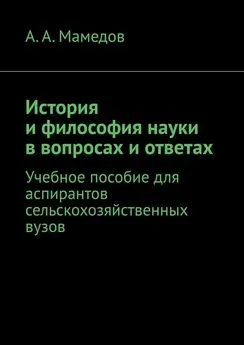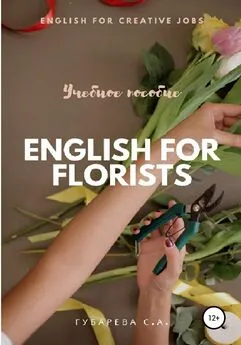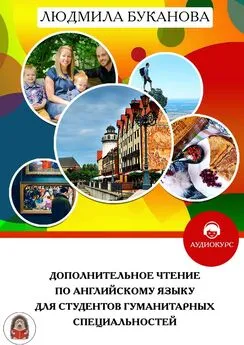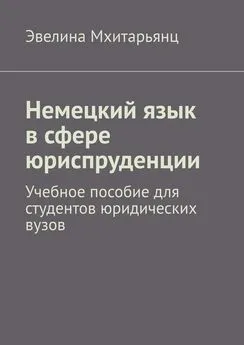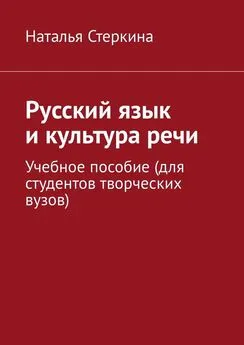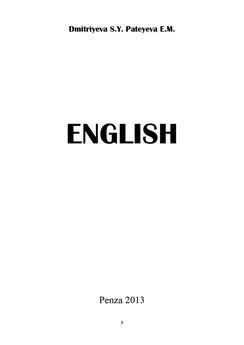Светлана Дмитриева - Английский язык для студентов сельскохозяйственных вузов
- Название:Английский язык для студентов сельскохозяйственных вузов
- Автор:
- Жанр:
- Издательство:Литагент БИБКОМ
- Год:2012
- ISBN:нет данных
- Рейтинг:
- Избранное:Добавить в избранное
-
Отзывы:
-
Ваша оценка:
Светлана Дмитриева - Английский язык для студентов сельскохозяйственных вузов краткое содержание
Английский язык для студентов сельскохозяйственных вузов - читать онлайн бесплатно ознакомительный отрывок
Интервал:
Закладка:
Ramfer, neigreen, dverir, cheater, rotcod, biudrle, meconotsi.
 Task 9. Fill in the form:
Task 9. Fill in the form:
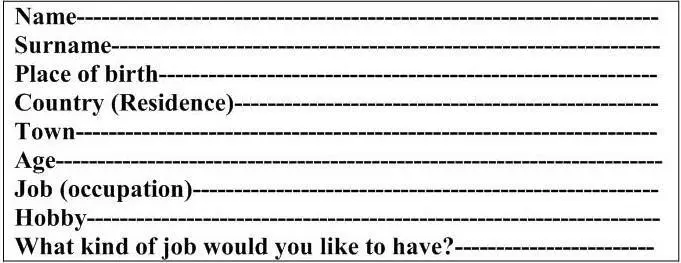
Use the words to describe a person:
A girl (a woman):nice, pretty, long/short-haired, fair/dark-haired, blonde, blue/brown-eyed, slim, fat, long-legged, a pleasant smile, is wearing jeans, goodlooking, pleasant, kind, beautiful.
A man:young, handsome, strong, well-built, tall/short, dark/fair-haired, has brown eyes, a big (small, straight) nose, short-cut hair, curly hair.
We can communicate with other people in many different ways. We can talk and write, and we can send messages with our hands and faces. There is also the phone (including the mobile!), the fax and e-mail. Television, film, painting, and photography can also communicate ideas.
Developing good communication skills is an important part of living a fulfilled life (полноценная жизнь) because:
• The average worker spends 50 percent of his or her time communicating.
• Business success is 85 percent dependent on effective communication and interpersonal skills (способность строить отношения и взаимопонимание с людьми).
• Forty-five percent of time spent communicating is listening.
• Writing represents nine percent of communication time.
• One-fourth of all workplace mistakes are the result of poor communication.
No matter (независимо от) what your age, background, or experience, effective communication is a skill you can learn.
Obviously, it is impossible to tell someone how to have a conversation, but here are some things that help:
• Ask questions.
• Show that you are interested.
• Don’t just answer yes or no .
• Try to add a comment of your own.
• Don’t let the conversation stop.
Exercise. 1. Scan the text.
Exercise 2. Here is the plan. Is it true?
I Ways of communication
II Importance of communication
III Having a conversation
Exercise 3. Choose the best answer.
– Hello, what’s your name?
a) Mary. b) Mary. And what’s your name?
– What a lovely day, isn’t it?
a) Oh, yes. I like such weather. What kind of weather do you like? b) Hmm, I don’t know.
– Where are you from?
a) Moscow. b) I come from Moscow, one of the busiest cities of the world. And what about you?
– Are you having a good time?
a) Hmm, yes. b) Yes, I meet a lot of people and see wonderful places.
 Exercise 4. Write your tips to improve conversations within other people.
Exercise 4. Write your tips to improve conversations within other people.
Introduce yourself and your friend.
Открытый слог оканчивается на гласную или на согласную, за которой следует немая гласная «е». Как правило, в таком слоге гласная читается так же как в алфавите.

Exercise 1. Read the words correctly.
a) date, lake, safe, make, take, state, plane, wave, frame, plate, mis΄take.
b) me, he, we, be, she, eve, Pete, these, theme.
c) I, hi, mine, wife, time, de΄fine, wine, like, dis΄like, a΄live, in΄vite, five,
d) no, go, home, alone, close, slope, note, ago, rose, hope, wrote, spoke, zone, pole.
e) use, re΄fuse, mule, tune, tube, ΄human, ΄student, super, a΄cute, June.
f) my, sky, why, try, type, cycle, fly, rely, apply, supp΄ly, dry, dyne, style.
!!! Remember:have [hæv], give [giv], some [s٨m], come [k٨m], live [liv], do [du:], two [tu:].
При закрытом положении слог оканчивается на одну или более согласных ( кроме r) в односложных словах, или за ударной гласной следуют две или более согласных ( кроме r) в многосложных словах. Все гласные в таком положении читаются кратко.

!!! Remember: Буква o перед m, n, th, v передаёт звук [٨]. e. g.London, Monday, son, front, month, another, mother, love, brother.
Буква u в словах : pull, full, put, push читается как [u]
Exercise 2. Read the words correctly.
a) map, sat, sad, stand, lamp, happy, apple, cat, fat, plan, bag, land, as, man, battle.
b) desk, net, next, bed, fed, red, men, ten, left, melt, send, sent, smell, best, end.
c) tip, lip, miss, will, fit, this, slim, disk, differ, win, clip, since, resist, sit, pick.
d) crop, stop, fodder, cross, on, not, pot, lot, got, offer, spot, hot, lock, dog, fog, log.
e) up, plus, cut, sun, be ΄ gun, bus, must, butter, bulb, pulse, number, re ΄ sult, ΄ hundred.
!!! f) have, love, come, some, glove, dove, mother, pull, push, full, put, monk.
Чтение гласных в сочетании с “r”

!!! Rememberw+ar [o: ] war, ward
w+o [ə:] work, word, world.
В безударном положении на конце слов буквосочетания: or, er дают нейтральный звук: [ ə:] instructor, worker.
Exercise 3. Read the words correctly.
a) start, smart, car, far, dark, mark, lark, star, part, ΄party, park, farm, ΄farming.
b) for, sport, thorn, storm, or, born, corn, scorn, forth, fork, pork, North.
c) fur, curl, ΄murder, hurl, burn, ΄burning, burst, ab΄surd, oc΄cur, purpose.
d) first, sir, thirsty, dirt, ΄dirty, firm, skirt, shirt, ΄circle, ΄circus, fir, girl, ΄birthday.
e) her, ΄ certain, ΄ certainly, in ΄ sert, term, ΄ terminal, re ΄ verse, Uni ΄ verse, in ΄ ternal,
f) director, factor, worker, computer, semester, manager, fertilizer, tutor,
Чтение согласной “c”
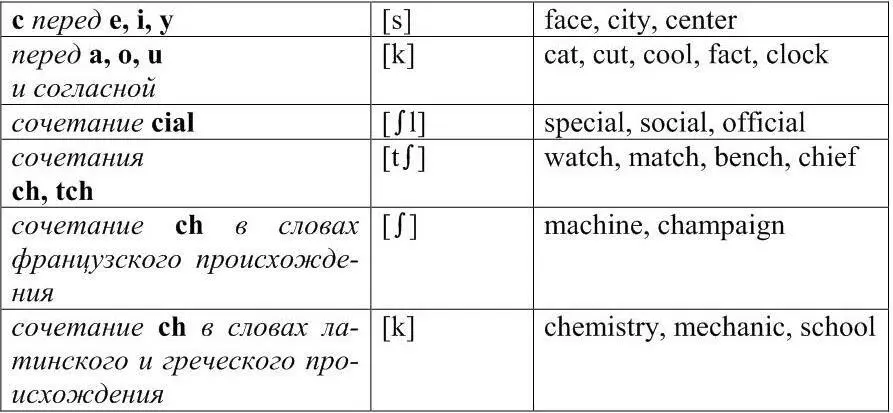
Exercise 4. Read the words correctly.
Circle, act, cube, chalk, case, cut, match, class, cattle, customer, cucumber, chalk, chemistry, center, century, bicycle, circumstances, machine.
В английском языке в повествовательном предложении существует фиксированный порядок слов: 1 место – подлежащее, 2 место – сказуемое, 3 место – дополнение, 4 место – обстоятельство. Обстоятельство может стоять также в начале предложения (0 место). Определение является единственным членом предложения, который не имеет фиксированного положения. Оно стоит с существительным, к которому относится.

M –modifier ( обстоятельство ); S –subject ( подлежащее) P –predicate ( сказуемое ); O –object ( дополнение ); A –attribute (определение)
Некоторые обстоятельства, выраженные наречиями неопределённого времени (always, also, probably, often, seldom, never, usually, rarely, sometimes, и др.) ставятся сразу перед сказуемым-глаголом. Если глагол to be входит в состав сказуемого, то такое обстоятельство стоит после него.
Eg. Tom always goesto work by car. She is neverasked at seminars.
Exercise 1. Make up sentences.
1) Football, every, play, I, day.
2) Pete, pop, and, music, likes, classical, very much.
3) Much, farmers, have, in, work, autumn, year, every.
4) Brother, a, bought, my, interesting, book, very, in, on, the bookshop, biology.
5) Is, he, late, always.
В английском языке существует четыре типа вопросов: общий, специальный, альтернативный и разделительный.
Общий вопрос (General question ) это вопрос, относящийся ко всему предложению и требующий ответа yes/no. E.g. Do you know the Browns? – Yes, I do / No, I don’t.
Специальный вопрос(Special question) это вопрос к какому-либо члену предложения и требует конкретного ответа. Здесь участвует вопросительное слово. Существует два типа специальных вопросов:
– к группе подлежащего (здесь нет вспомогательного глагола. E.g. Who lives in London? )
– к любому другому члену предложения. E.g. Where is Mark?
Вопросительные слова:What? When? Who? Why? Where? How many ( much )? How? Whom? Which? Whose?
Альтернативный вопрос(Alternative question) это вопрос, в основе которого лежит выбор-альтернатива. Здесь участвует союз or. E.g. Do you study English or German?
Читать дальшеИнтервал:
Закладка:
